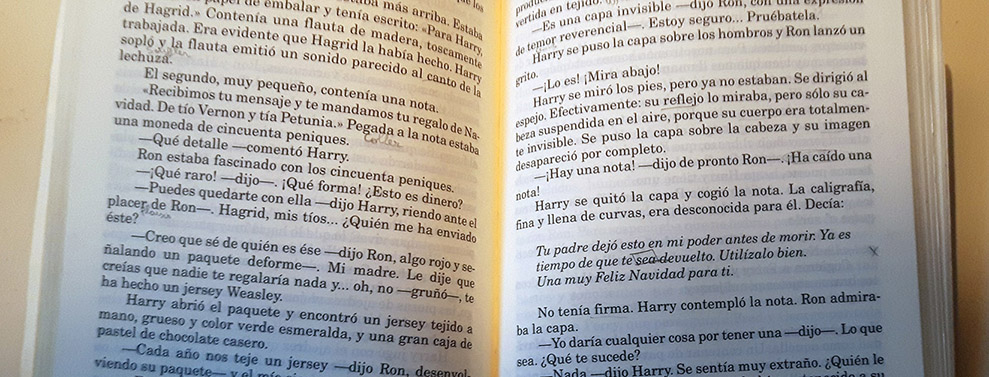Editor's note: Guillaume LP is a friend of the Langu blog who writes an excellent French-language blog about his adventures learning a variety of languages, particularly English & Dutch. Guillaume was kind enough to translate one of his posts into English for us!
How important is reading when it comes to learning a new language?
Spoiler: very important! It’s by reading that I learnt English and Dutch. Reading is essential because it reinforces frequently-used words as well as gets you familiar with the grammar. I remember spending holidays when I was still in secondary school doing nothing but reading, and that’s how I learnt most.
But how should you read when you want to learn a language and improve? How do you do that in a foreign language? Here are a couple of useful tips that I’ve been using for some time even after learning English and Dutch:
- Don’t try to translate every single word. You WILL encounter unknown and infrequent words. DO NOT TRANSLATE THEM! They will slow you down and won’t help your comprehension of the text that much. Only translate frequently recurring words or words which really get in the way of your comprehension. I stopped trying to understand everything a long time ago. Even at a high level, you will continue to encounter unknown words, even in your native language. Try reading Plato’s Republic in your mother tongue!
- Analyse and observe. When I was learning the subjunctive in Spanish, I underlined subjunctive verbs or put a cross in the margin. By the end of the chapter, I would go through it and look at the occurrences to try and understand the logic of the grammar. The image below is an example from when I was reading Harry Potter 1 in Spanish.

- Compare theory and real language use. If you’ve studied a grammatical concept, look at how it’s used in the book. You’ll end up understanding how it's really used. This is particularly useful when theory and real language use don’t match so much anymore (in English, for example, look at the distinction between “will” and “going to”). That way you are sure to see how native speakers use the language, and that’s what matters, right?
- Find a book with a language level which is slightly above yours (Krashen’s i+1 theory). A book that's too easy won’t teach you anything, but a book that's too advanced will make you want to give up.
- Write translations for the frequent words. And be selective! This way, when you encounter them again, look at the translation, but do not translate too many words per page. I usually try not to translate more than 5 words per page. If you’re learning for enjoyment, reading shouldn’t hinder the joy. The level should therefore not be too high.
- Don’t be a perfectionist. If you read a same sentence 15 times and you still don’t get it, it might be because of a grammar point which is too advanced for your level. In this case, you have 2 choices: You look it up on the internet, in a book, or ask someone; or you drop it. It will click later, when your level is higher. No need to swallow all the grammar rules at once!
Remember, enjoy what you're reading and don't not try to understand everything at once. Learning a language takes time, and you will still be learning 10 years from now. So now that summer's here, grab a good book, get yourself to a beach, and get reading!
Editor's note again: Harry Potter is a great place to get started! Check it out in English, Spanish, French, or Italian. And of course any of our English, Spanish, French or Italian teachers would be happy to help!

